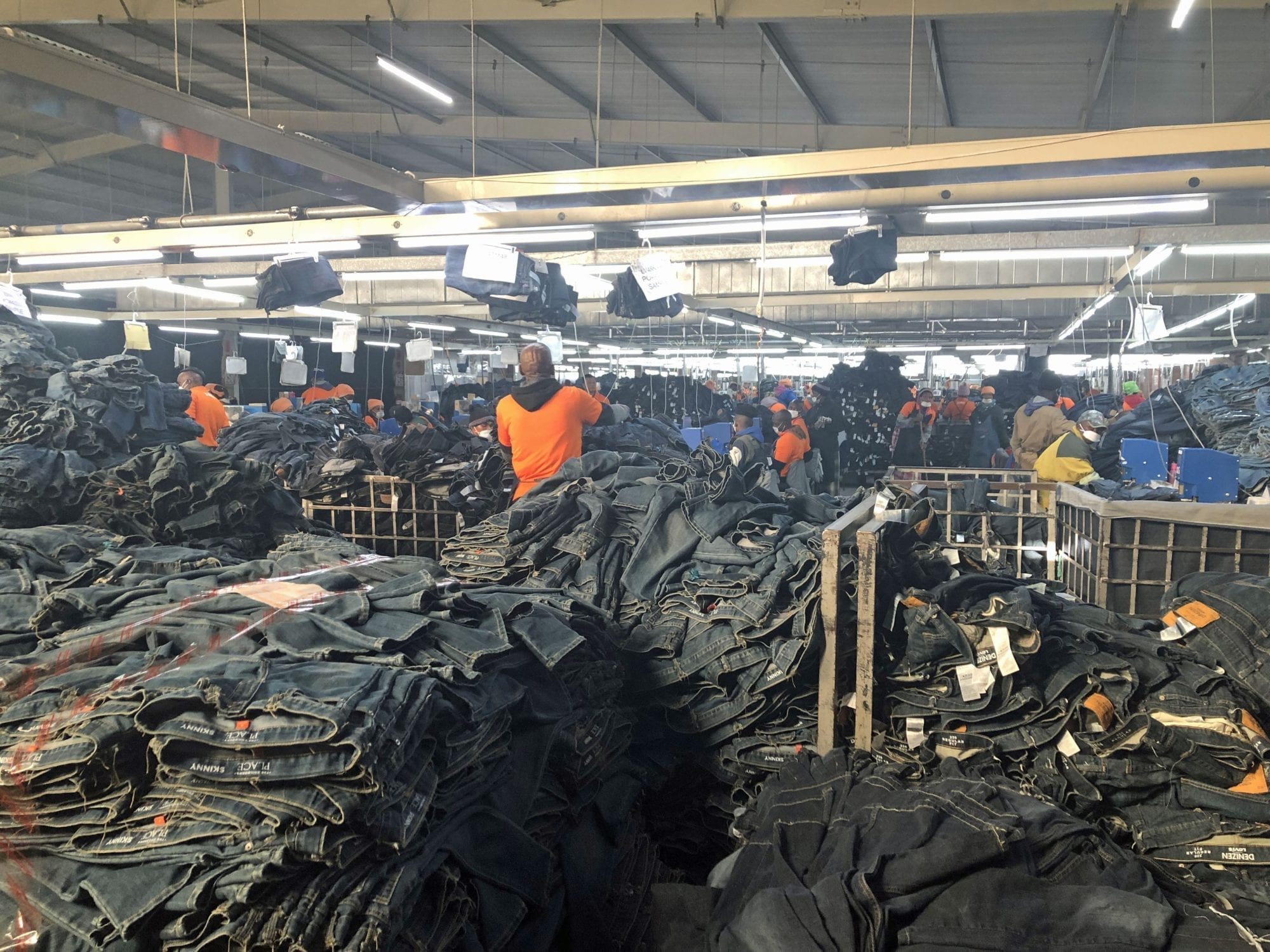Five years after its adoption by the International Labor Organization (ILO)—a specialized agency of the United Nations—the first global binding treaty to address gender-based violence and harassment (GBVH) in the world of work is yielding tangible results, addressing the fear of harassment and violence many workers face every day at work because of their gender.
The Violence and Harassment Convention, C190, calls on governments, employers and unions to work together to confront the root causes of GBVH, including multiple and intersecting forms of discrimination, gender stereotypes and unequal gender-based power relationships.
Women trade unionists and feminist activists campaigned for more than a decade to make the adoption of C190 possible, led by the International Trade Union Confederation (ITUC), the Solidarity Center and other labor allies. Since C190’s adoption by governments, employers and worker representatives one year ago, unions have conducted extensive education and awareness training among members, a process that has mobilized members to confront GBVH at their workplaces through collective bargaining.
A June 20 virtual celebration, co-sponsored by the Solidarity Center, brought together 361 worker and women’s rights activists from around the world to report progress, discuss their plans to ensure C190 ratification and implementation, and envision the changes necessary to end GBVH in the world of work. The convention has been ratified by 44 countries.
THE POWER OF C190
C190 has been an “extremely valuable tool that legitimized the global problem of GBVH,” said Anannya Bhattacharjee, Asia Floor Wage Alliance (AFWA) international coordinator, including the Dindigul Agreement, said at the event. Signed with three global brands, the agreement is the first of its kind to address GBVH in the workplace in Asia and came about following the widely publicized rape and murder of a 20-year old woman garment worker by her supervisor following months of harassment.
One of the most important successes of a decade-long fight for adoption, ratification and implementation of C190 is its contribution to women’s leadership, said Fulya Pinar Ozcan, International Trade Union Confederation (ITUC) Women’s Committee member and Women’s Committee at Öz İplik-İş-Turkiye president. ITUC represents 200 million workers in 168 countries.
“I want you to imagine waking up every morning in fear of going to work, knowing that you might face harassment or violence just because of your gender,” she said. “And now imagine a world where this fear doesn’t exist, where every woman feels safe, respected and valued.”
In this context, C190 is both a path to freedom from fear and a transformative opportunity to empower women to rise as leaders during the development of the C190 campaign, said Ozcan.
“C190 is more than a legal instrument. It is a beacon of hope,” she said.
Because its constitution grants constitutional status to all UN conventions, Mexico’s government could begin implementing C190 immediately, said Marta Ferreyra, Institute for Women in Mexico (INMUJERES) National Policy of Equality and Rights of Women director general.
And Christy Hoffman, UNI global union general secretary, said that unions are now integrating C190 text in agreements, among them UNI’s global agreement with French telephone company Orange, and many more national and local collective bargaining agreements point toward C190 descriptions of violence and harassment and remedies.
MORE WORK TO BE DONE
Dr. Geeta Rao Gupta, U.S. ambassador-at-large for the U.S. Department of State’s Office of Global Women’s Issues, told the audience that, “Violence and sexual harassment anywhere is a gross human rights violation and it must stop.”
Reporting back from this month’s ILO International Labor Conference event promoting decent work for care workers, International Domestic Workers Federation (IDWF) General Secretary Adriana Paz Ramirez outlined increased GBVH risks for domestic workers who are providing child and elder care in private homes. Risks are especially high for migrant women who are legally tied to a single employer, such as in Gulf countries under the kafala system.
Tomoya Obokata, UN Special Rapporteur on contemporary forms of slavery said addressing intersectionality in the uneven effects of GBVH in the world of work is key. He said, as addressed in his 2022 report on contemporary forms of slavery, it is clear that Indigenous, minority and migrant workers are “particularly at risk of abuse.”
Lopa Banerjee, UN Women Civil Society division director, said that governments’ implementation of all normative frameworks that support gender equality, including C190, are key, as is adequate resourcing of women’s feminist and labor justice movements and institutions.
“This is a moment to really strengthen the feminist movement–including the gender justice and labor justice movements,” she said.
A power shift sufficient to end GBVH in the world of work is predicated on recognition that the economy is political, said Ghada Abdel Tawab, Ford Foundation Future of Work(ers) International senior program officer. “Organizing and cross-movement building across labor and gender have been key in shifting power back to the worker,” she said, adding that “the state, the market and labor are intertwined.”
Fatime Christiane Ndiaye, ILO senior gender specialist and Decent Work Team-Dakar member; and Laura Nyirinkindi, Working Group on Discrimination Against Women and Girls member and National Federation of Women Lawyers Africa regional vice president.
Event co-sponsors included AFWA, Bangladesh Center for Workers Solidarity (BCWS), Feminist Alliance for Rights (FAR), Global Labor Justice (GLJ), Human Rights Watch, IDWF, ITUC, Nigeria Labor Congress (NLC), Solidarity Center and UNI Global Union.
The celebration was moderated by human rights journalist for The Guardian Annie Kelly and Feminist Alliance for Rights (FAR) Transnational Lead Krishanti Dharmaraj, both of whom pointed to UN Women’s Beijing +30 (2025) gathering as a key opportunity for moving forward the expansion of women’s rights, including through the eradication of GBVH in the world of work.
Learn more about Solidarity Center and GBVH in the world of work here.

